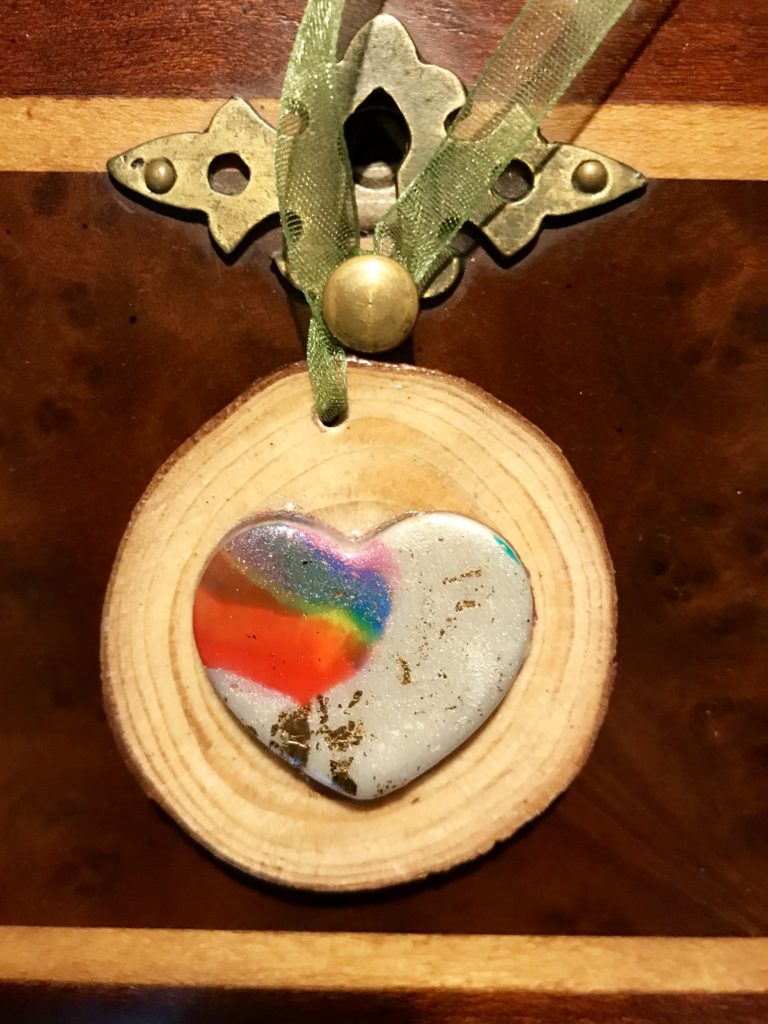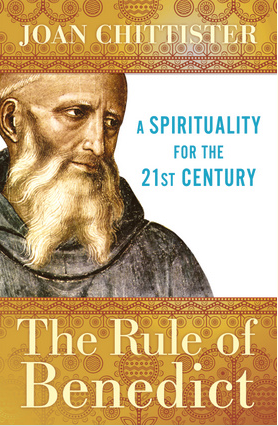This article is for spiritual seekers, Benedictine Oblates, anyone seeking to nurture a sacred way of life, and people practicing a 12-step program who want to explore centuries-old wisdom to support Step 11 (about praying for the knowledge of the will of God [Higher Power] and the strength to carry it out.)
In this article, principles for the practice of discernment come from the “Statement on the Rule of Discernment in the Lives of American Benedictine Women,” published by the Conference of American Benedictine Prioresses ©2001. I will unpack the following line from that document, to offer a framework in the form of questions that can help us “walk the path of wisdom in total dedication to … the will of God:”
“The practice of discernment as a way of life envisioned in the Rule [of Benedict] indicates the subtle interplay of the monastic values of humility, obedience, wisdom, peace, good zeal, and love …”
6 Benedictine values to consider when discerning what to do
When facing a decision, it can be helpful to assess how an action or activity might strengthen or weaken the values and commitments that deepen our awareness of the presence of God in our life, in all of life. At the end of this article, the “questions to discover” can illuminate our hidden motives, reveal overly optimistic or pessimistic thinking, and bring clarity so that we may recognize the wiser choice.
Values and practices to support a sacred (and healthy) way of life
Humility
Benedictine humility is not humiliating. Instead, it is rooted in the paradoxical notion that “you’re part of something bigger.” The author of this New Camaldoli Hermitage blog post explains:
“On the one hand, it makes life simpler because that means I don’t have to understand everything; I don’t have to have all the answers. I just do my part and trust that I am part of a bigger picture, a bigger plan of which I may not see the full scope. On the other hand, it sets the bar higher, because I have to think of something or someone beside myself. I’m part of something bigger.”
In a 12-step program, with every step we must set aside our desire for control, admitting that while we can learn to manage our own reactions to life, we cannot manage life itself. And that is the essence humility. In her commentary on The Rule of Benedict, Joan Chittister tells us that humility is “a proper sense of self in a universe of wonders….the basis for right relationships in life.”
Obedience (Listening)
“Listen,” is the first word in the Rule of Benedict, a nearly 1500 year old document of wisdom literature that teaches us “a way of walking through the universe whole and holy.”** We are instructed to pay attention, to live consciously, to look for the true meaning or purpose hidden in our own thoughts and feelings, in our encounters with others, and in our moments of awareness of the presence of God.
In a podcast at DiscerningHearts.com from the Missionary Benedictines of Christ the King Priory, Fr. Mauritius Wilde O.S.B explains that obedience means to listen. Obedience is an act of letting go of the egoistic will for power, popularity, and control. In order to let go, we listen to our deepest, heartfelt yearnings for goodness (God). We listen to others who bring good intentions to support our well being and to help us grow. We let down our defenses and consider a point of view other than our reactionary insistence that we know best. We listen deeply, “with the ear of the heart.”
Wisdom
Wisdom, according to the Serenity prayer (widely attributed to the Protestant theologian Reinhold Niehburh) is knowing the difference between what we cannot change and what we can. We cannot control the workings of the universe. We cannot mange the world and its systems and creatures. We have no power to make other people behave and react the way we want them to. We can, however, manage how care-fully we listen to ourselves and others, and the way we respond to our own thoughts and feelings.
Peace
Peace is found only when violence, injustice, and prejudice are absent. To work effectively for peace, we need to recognize and learn to manage our own stingy, judgmental, mean-spirited, and hateful attitudes and actions. Without doing this internal work of self-acceptance, we will carry our own unhealed wounds into our interactions, where we risk inflicting our pain on others.
Good Zeal
Good Zeal, as I understand it, is simply being in love with others. When we are in love with people, we willingly and patiently put up with their weaknesses and foibles, choosing to see them in the best light. When we bring that affectionate attitude to our interactions with all the humans–and all life–around us, when we consider whether our actions benefit or harm them, we demonstrate good zeal.
Love
In the quest for living in harmony with others, good zeal is the attitude, and love is the sum of the actions that flow from our willingness to bear with others, to see the best aspects of their nature and their motives.
Discernment questions to discover our motives and presumptions
Having a solid practice of mindful self-compassion helps with this probing and testing, which is something like a biopsy to check for cancerous cells–it can be a bit painful and leave us feeling sore.
To begin this discernment process, you may want to sit silently for a moment and invite God [Higher Power, or whatever/however you understand a being/consciousness bigger and more loving than yourself] to be with you. When I enter this discernment process, I make a conscious decision to bravely open my heart to the truth that I am adept at fooling myself into thinking my motives are pure. And I ask my observer-self to let go of judgement and instead bring a lot of compassion and kindness, while noticing–in a detached way–my own thoughts and feelings.
If you’re still struggling with the habit of coming to quick and harsh judgements, you might want to ask your most compassionate friend or a spiritual companion (director) to listen to your answers to these questions.
To discover whether a proposed action or activity fosters humility, ask:
Am I attracted to this because it bolsters my ambitions?
Do I fear I’m not good enough for this?
Will this put me in an advantageous position to use someone else’s influence to achieve my goals?
Or, will this allow me to collaborate with others in a helpful way, to learn from them, and to see myself as a small part of something bigger, something essentially good?
To discover whether you are listening, ask:
Am I overly attached to my first opinion or reaction?
How does my heart feel about this?
Have I asked important people in my life — my wise guides, mentors, and friends, as well as those who will be affected by my decision — what they think?
Have I listened to them care-fully and well, without shutting my mind in defense of my own point of view?
To discover whether a proposed action or activity is wise, ask:
Do I want to do this because I think it will give me more power or popularity?
Do I secretly hope this action or activity will give me control over someone or something, or make things turn out according to my plan?
How will this open the ear of my heart to my inner truth and/or give me a greater understanding of the joys and sufferings of others?
To discover whether this action or activity will foster peace, ask:
Will participating in this cause me to slack or be sloppy in fulfilling any prior commitments?
Will it interfere with my loved ones’ needs for a fair amount of my time and attention?
Will it make me feel hectic or too busy, which could cause me to speak sharply to someone, ignore them, or make snap decisions or judgements?
To discover whether a proposed action or activity promotes an attitude of good zeal and supports loving actions, ask:
Is this a kind and compassionate thing to do for myself?
How is this likely to improve my ability to see myself, the people I live with, and the people I encounter as wonderfully lovable?
How will this energize me to act without bitterness and resentment, with warmth and generosity, in ways that are self-respecting and respectful of my own needs and the needs of the people I have made commitments to?
How to use these discernment questions
You can journal your answers to these questions, discuss them with a confidante, or doodle them into a prayer-response. I have found that when I engage in this process with courage and with good intentions, I am able to embrace the activities that will bring greater peace, love, and joy into my life, and let go of the things that will not serve a higher good.
A Blessing
May the values of humility, obedience, wisdom, peace, good zeal, and love spiral and grow around us in a subtle, gentle interplay of grace to beautify our living. And may our choices bring us, and all the world around us, ever greater justice and peace.

**(Joan Chittister, The Rule of Benedict: A Spirituality For The 21st Century, @1992,2001 The Crossroad Publishing Company,3).

